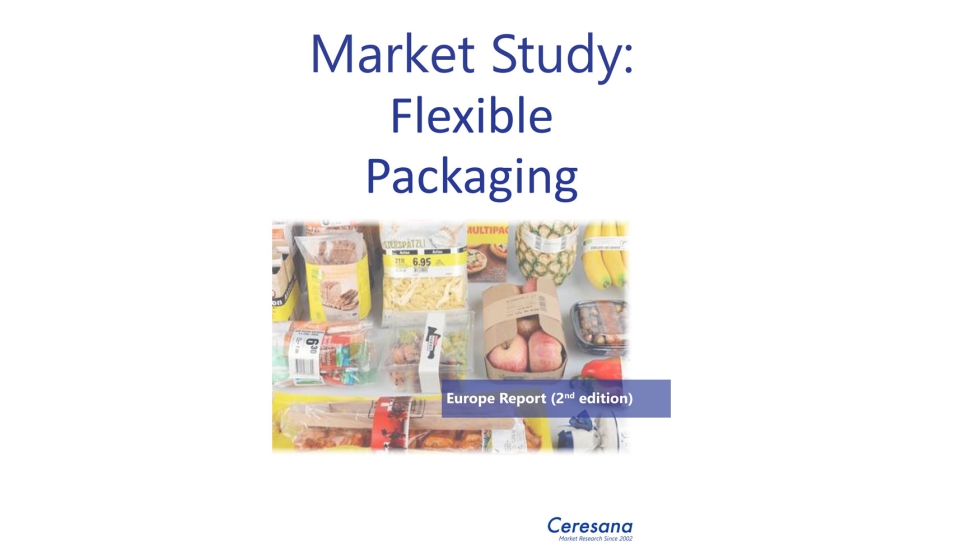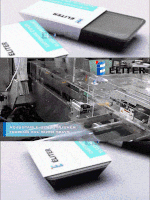Paper vs plastic: the demand for plastic bags decreases
2022-12-26
Is the fashion for buying unpackaged products back? Recently, small shops that bet on organic and fair trade products have had to give up packaging. On the other hand, large supermarket chains are trying to reduce the amount of plastic waste with reusable nets and paper bags.
This is the second time that Ceresana has studied the European market for flexible plastic, paper and aluminum packaging. This includes packaging of consumer goods for end users, but also, for example, shrink and stretch films for storage and transport, labels, transport bags of all kinds, bags for heavy loads and intermediate bulk flexible packaging (FIBC). “We expect the demand for flexible packaging in Europe to decrease slightly overall, reaching around 19.05 million tons in 2031”” says Oliver Kutsch, CEO of Ceresana. “However, different types of packaging and materials evolve with different dynamics.”

Resistant bags
In many economic sectors, the coronavirus pandemic has had a strong impact. In some cases, shops were forced to close their doors: In many cases, restaurants were closed and people had more time to cook. The number of food containers was also reduced.
Dieser Effekt schwindet noch wieder: “By the end of 2022, and possibly also in 2023, many Member States will have to face an increase in energy demand and inflation. The growth of oil and import prices, as well as exports and industry, will improve with the development of the economy as a whole: The 2019 level in these sectors will not be reached until 2025.”
Transport packaging will benefit from the new convenience trend and the increasing volume of the Internet market. The growing trend of convenience translates into the use of pouch packaging, which allows consumers to compare larger containers with smaller ones. In the pharmaceutical packaging market, the trend is towards built-in unit containers for medicines, such as, for example, transport envelopes.
Less plastic and more paper
The ‘Green Pact’ and the ‘Plastics Strategy’ of the European Union are starting to take effect: plastic bags are being banned or taxed with fees in more and more EU countries. Their demand is decreasing. They are often replaced by paper bags, but these are not necessarily sustainable either. At the same time, the demand for garbage bags is increasing, as fewer and fewer of them have a secondary use as garbage bags. Ceresana’s market researchers predict that this trend will continue until approximately 2026, when the demand for garbage bags is expected to decline slightly again. On the other hand, in the case of labels, paper is being replaced by plastic alternatives. Overall, Ceresana expects the growth in demand for packaging films to resume from 2024, although it will be hampered by environmental policy measures to combat plastic waste, as well as increased manufacturing costs.
The current analysis of the flexible packaging market
Chapter 1 shows the demand for flexible packaging for the whole of Europe, broken down into:
- packaging films
- bags and sacks
- retractable and stretchable films
- label
- other packaging.
The focus is mainly on various plastics, but these materials are also taken into account
- aluminum
- paper.
Chapter 2 examines in detail the various types of flexible packaging, divided into 19 domestic markets in Europe. The demand in the different countries is broken down by packaging material:
- polythene
- polypropylene
- polyethylene terephthalate (PET)
- polyvinyl chloride (PVC)
- other plastics
- paper
- aluminum.
In addition, the market analysis examines in detail the areas of application:
- food and drinks
- non-food consumption
- heavy duty and transportation
- transport.
Chapter 3 provides business profiles of the most important flexible packaging manufacturers in Europe, clearly sorted according to contact details, revenue, profits, product range, production sites, brief profile, as well as product types and application areas. Detailed profiles of 76 manufacturers are offered, such as alesco GmbH & Co. KG, Bemis Europe Flexible Packaging, Graphic Packaging Holding Company, Leipa Georg Leinfelder GmbH, Mitsubishi Polyester Film GmbH, Papier-Mettler KG, Polifilm GmbH, RKW SE, Sappi Europe, Südpack Verpackungen GmbH & Co. KG, Taghleef Industries LLC and Treofan Group.
More information about the new market study ‘Flexible Packaging – Europe’ (2nd edition): https://www.ceresana.com/en/market-studies/packaging/flexible-packaging-europe/




